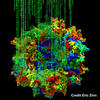Publications from the Harvard Medical School Department of Ophthalmology
Filter By
- Harvard Ophthalmology Mentoring Award (8)
- 2017 HMS Mentoring Awards (2)
- Age-related Macular Degeneration (13)
- Alumni (19)
- Angiogenesis (2)
- Awards (297)
- Cataract (1)
- Cornea (21)
- Departmental Reports (1)
- Diabetic Eye Disease (11)
- Education (28)
- Events (53)
- Faculty (237)
- Gene Therapy (7)
- Genomics (3)
- Glaucoma (10)
- Grants (48)
- Imaging and Diagnostics (1)
- Immunology and Uveitis (3)
- Infectious Disease (6)
- Mobility Enhancement & Vision Rehabilitation (10)
- Neuro-ophthalmology (5)
- Newsletters (3)
- Oculoplastics (3)
- Patient Care (1)
- Pediatric Ophthalmology (5)
- Press (21)
- Press Release (26)
- Publications (13)
- Refractive Surgery (2)
- Regenerative Medicine (7)
- Research (57)
- Retina (25)
- Retinal Degenerations (5)
- Strabismus (4)
- Trainees (104)
Copyright © 2024 The President and Fellows of Harvard College | Accessibility | Digital Accessibility | Report Copyright Infringement











